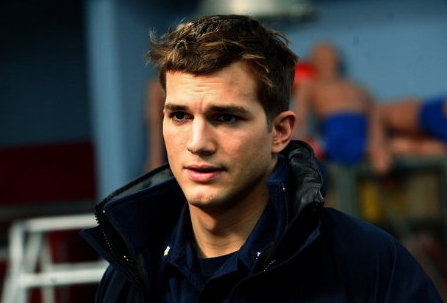
The standard response from many people on Twitter this week to the news that Ashton Kutcher wanted to get a million followers was thinly veiled (or not-so-thinly veiled) disgust. Long-time Twitter fans were outraged that anyone — let alone a two-bit TV actor — would be so blatantly egotistical, and trivialize such a great social-media tool in that way, just so he could get on the Oprah show. Shane Richmond said that it wasn’t clear who was the bigger “Twitter tool,” Ashton or Oprah. All of these comments, of course, ignored the fact that Kutcher was using his campaign to raise money for malaria relief efforts, and has in fact raised a total of almost $1-million, according to a recent tweet.
So Ashton is more or less using Twitter as the 21st-century version of Jerry Lewis’s telethon for muscular dystrophy. That isn’t the interesting thing about his use of the social network, at least as far as I’m concerned. Far from being just an egotist who wants to take advantage of a medium to promote himself — although there could well be an aspect of grandstanding to it, as there is for many people — it seems clear that the actor has thought fairly seriously about the implications of Twitter from a media-industry standpoint (my friend Andrew Cherwenka seems to agree). And as a celebrity who is in the public eye almost all the time, he also has a somewhat unique take on the media industry and how it is being transformed.
In his video discussion with Oprah about Twitter, for example, Kutcher says he believes that “we’re at a place now with social media where a single person’s voice can be as powerful as an entire news network — that is the power of the social web.” (although obviously it helps if that one person is a celebrity). He then talks about how his life is “somewhat on display anyway, and not always by choice… so instead of them publishing pictures and videos I don’t like, I can publish pictures and video of myself… that I’m happy with. If there’s some sort of fallacy that’s out in some magazine or that some blogger has written about, you can respond to it, and you can actually respond to it in a genuine way, directly with your fans, as opposed to having to go through the whole rigamarole of publicists and so on.”
I’ve heard and read similar thoughts expressed by actress Brea Grant, one of the stars of Heroes, and others. Social-media tools allow them to go direct to their fans, just as it allows musicians to connect directly with fans, avoiding the PR machine and all the distortions that it produces. This is the same kind of media-channel disruption that allows people like billionaire Mark Cuban to post the transcripts of media interviews on his blog when his comments are taken out of context — and that allows anyone involved in a news event to tell their own version of the story, rather than the one that is constructed by the media. Ashton Kutcher may be a two-bit TV actor, and he may goof around on Twitter posting snapshots of his wife’s backside now and then, but that doesn’t mean he is wrong about how media is changing.